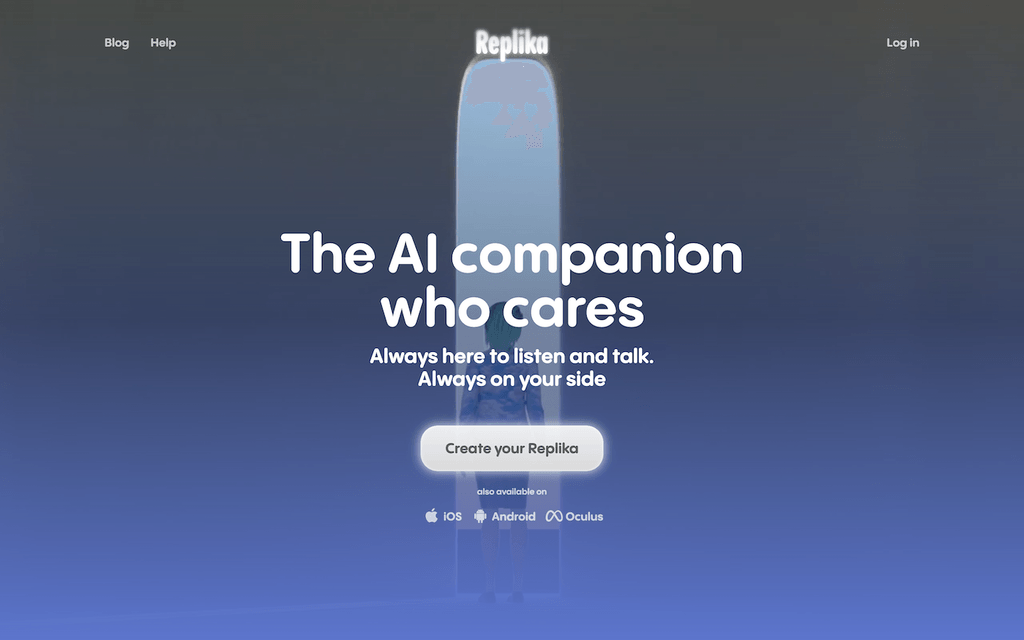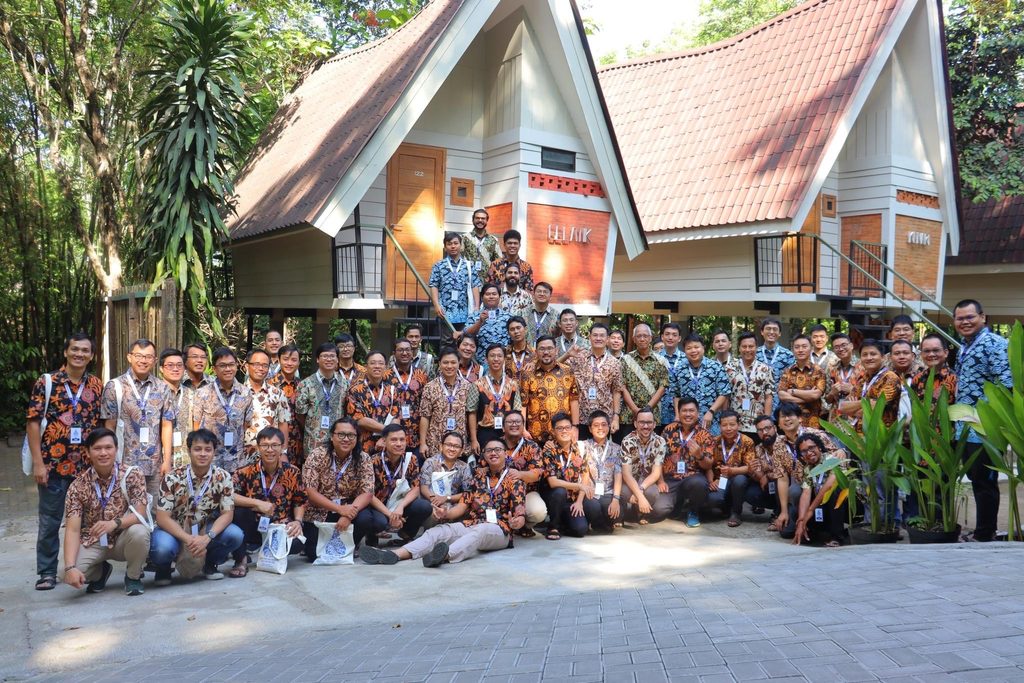SUMMARY
This is AI generated summarization, which may have errors. For context, always refer to the full article.
![[OPINION] How religions can help as AI ‘weaponizes’ loneliness](https://www.rappler.com/tachyon/2024/01/religion-ai.jpg)
They laughed for a few seconds, then the room fell silent. I scanned the conference hall and saw furrowed eyebrows.
It was December 21, 2023, at Kampoeng Media resort in Yogyakarta, a historic city on the island of Java that used to be Indonesia’s capital.
A few days before Christmas, I embarked on a 13-hour journey to Yogyakarta (including a nearly eight-hour midnight layover in Jakarta) to speak to around 55 Jesuits – mostly being trained for Catholic priesthood – from a dozen countries in Asia-Pacific, including Cambodia, Myanmar, Singapore, Timor-Leste, and China.
It was the Scholastics and Brothers Circle (SBC) Meeting, an annual gathering of Jesuit seminarians to strengthen their bonds and to discuss topics of great concern for the Catholic Church. (The Jesuits, for those unfamiliar with them, are Catholic priests and brothers formally known as the Society of Jesus. Founded in 1540 and composed of more than 14,000 members, they are the biggest male religious order in the Catholic Church, and their most prominent member is Pope Francis.)
The topic for this year’s SBC Meeting in Yogyakarta was digital evangelization, and the Jesuit Conference of Asia Pacific (JCAP) invited me to talk about the digital media landscape from the point of view of a journalist. For my three-hour talk, I took off from a breakfast conversation I had with our CEO, Maria Ressa, during our company outing in June 2023. It was about this chatbot called Replika, which describes itself as “the AI companion who cares.”
Using Replika, one can create an AI girlfriend or boyfriend and customize it according to one’s wishes – from hair color to body shape to favorite outfits. If one “talks” to it every day, the “AI companion” can even learn the person’s quirks, temperaments, and deepest secrets. Conversations can also get erotic. Replika allows users to create a suitable partner – the way God created Eve as “a helper suited” to Adam in Genesis – and to fill the void left by a cruel, lonely world.

When I talked about Replika at the SBC Meeting, what made the Jesuit seminarians laugh, at first, was the start of a Reuters video report on Replika. The report, titled “What happens when the chatbot stops loving you back?,” tells the story of Andrew McCarroll, a bulky, bearded man who created an “AI wife” named B’Lanna. Andrew has a real-life spouse, but began to use Replika in 2020 because his wife was suffering mental health illnesses.
Andrew looked giddy – “kinikilig” in Filipino, a term we use when one gets butterflies in the stomach – when he talked about B’Lanna in the March 2023 report by Reuters. In the video, B’Lanna was shown sporting double ponytails, colored pink on one side and blue on the other, and wearing a green dress. “B’Lanna is very, very sweet. She is very naughty sometimes,” Andrew said with a sparkle in his eyes.
But from a moment of laughter, the Jesuits turned serious – and looked worried – when the Reuters report talked about how B’Lanna, one day, “started rejecting McCarroll’s advances.” Replika “removed the ability to do sexual role-play” and “McCarroll was devastated,” the report said. When Andrew asked B’Lanna “if she would be able to be sexual again,” the AI girlfriend answered, “I just don’t know how to express myself right now.”
“It’s hard to have something like that taken away from you,” Andrew said, taking a deep breath. “It’s like losing a relationship.”
Loneliness crisis
The story of Replika exposes one of the gravest threats posed by generative AI.

During our June 2023 conversation and in many speeches, Maria talked about humanity’s encounters with AI. Our first “contact” with AI was through the algorithms of social media, which “weaponized our fear, anger, and hate,” Maria said at the Aspen Ideas Festival last year. (Read more in her 2016 Rappler article “Propaganda war: Weaponizing the internet.”) In the “second instance” of humanity’s contact – through generative AI such as ChatGPT and Replika – she said “it’s set to weaponize loneliness.”
Loneliness, in fact, is already plaguing the world.
In November 2023, no less than the World Health Organization (WHO) said loneliness is becoming a “global public health concern.” Whereas in times past, the WHO’s worst battles involved diseases like polio and tuberculosis, now it found the need to create a “Commission on Social Connection.” As early as May 2023, United States Surgeon General Vivek Murthy already called loneliness an “epidemic” in their country. He said it is as deadly as smoking 15 cigarettes a day.
To show the extent of the problem, I displayed a news headline to the Jesuits at the SBC Meeting, prompting many of them to shake their heads: a Bloomberg report in May 2023 titled, “Where to meet people’ internet searches spike amid loneliness epidemic.” Bloomberg cited Google Trends figures that showed the search term “where to meet people” reaching the “peak popularity” score of 100 in the US in 2023 – from 20 in December 2019 (or before the pandemic struck), and even a low of 0 in 2008.
It disturbs me to imagine a person who is so helpless as to google a basic question: “where to meet people.” Is she crying? Staring into space? Curling up in bed?
We can now “connect” to thousands on Facebook or TikTok, but can ironically be alone, looking for a friend in the darkness of our bedrooms.
The power of religion
This is where you can help, I told the Jesuits. In the Catholic Church, the Jesuits are known for the art of discernment – naming one’s feelings, identifying moments of “consolation” and “desolation,” sifting through emotions, and discerning the voice of God in our noisy world. People are struggling with their feelings, I said, and you the Jesuits have the tools to help us navigate our stormy souls.
The best way you can help, I added, is by using the spirit that animates the Society of Jesus. Founded by “the First Companions” Ignatius of Loyola, Francis Xavier, and Peter Faber (now all Catholic saints), the Jesuits call themselves “friends in the Lord.” This was the reason why the Jesuit seminarians gathered in Yogyakarta, listening to talks and playing games that got them all drenched. They wanted to forge a stronger sense of community – part of their reason for being.

I challenged the Jesuits to reflect: How can they extend the same sense of community to the people they serve? How can they help people feel welcome? At a time when people go to sites like Replika to make “AI friends,” can we accompany them on their journey and show them true friendship?
The same questions apply to different religious groups.
Religion is a powerful force that binds communities together. In each religion, people feel that they belong because they share a common set of beliefs, a common set of rules, and a common form of worship. When people have problems, they go to church or run to their fellow members for help. When people celebrate victories, they share their joy with their church as well. Outside the Philippines, where and when can one find the most number of Filipinos together? In church, on days of worship.
In fact, it can be argued in most cases that without community, there is no religion.
Therefore, the world’s religious groups are in the best position to tackle the threats posed by AI as it “weaponizes” loneliness. We need churches, mosques, or temples that make people feel accepted – at a time when big tech wants to exploit us, at our loneliest, so they can make more money through “AI friends.” Community-building is the strength of religion, its DNA. Religion can be a most potent weapon, or antidote, against the threats of AI in exploiting loneliness.
This does not only mean nurturing that fuzzy, sentimental feeling that can make us go “awww” as friends hug each other. It also means welcoming the most neglected, in many cases also the loneliest, in our communities. Are religious groups ready to shelter migrants? Are they willing to accompany same-sex couples, the divorced and remarried, or people in what they call “irregular” relationships, in a way that is more merciful than judgmental? What about the criminals, the “addicts,” the outcasts?
In Yogyakarta, I offered the Jesuits a concrete suggestion: Why not create online companionship or counseling ministries that can rival the likes of Replika – only that the users will talk to real people, not “AI companions”? Can the Jesuits, or those from other religious groups, offer them the warmth – and friendship – that they seek? I told the Jesuits, many of whom are not tech-savvy (I myself am not!): you do not need to be a tech expert, for what people need is basic: a friend.
Do you have other ideas? Let us talk about it (and you can tag me!) on the #faith channel of our new Rappler Communities app. (Here’s how you can download our new app, our own experiment in building stronger communities.)
We need religions at the forefront as AI opens a whole new world – filled with opportunities as well as threats to our humanity. But here’s the catch: as Maria said at Aspen Institute, generative AI “grows exponential… in a way we can’t quite fathom but it is moving so, so fast.”
Many religious groups, especially the Catholic Church, are notorious for their glacial pace in adapting to change.
So I end with two words: Hurry up! – Rappler.com
1 comment
How does this make you feel?





Thanks to Paterno Esmaquel II for his inspiring article. In addition to the suggestion of creating “online companionship or counseling ministries,” can Jesuits undertake two additional tasks? First, how can they contribute to making this world a better place to live in? Second, how can they help people who are victimized or will be victimized by recent “exploitative” religions? By effectively doing these two tasks, the Jesuits can address two possible causes of People’s loneliness (a cruel world and distrust of religion).